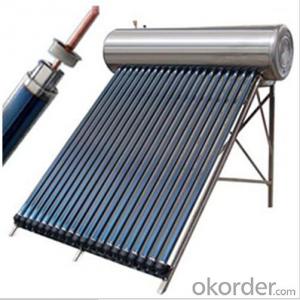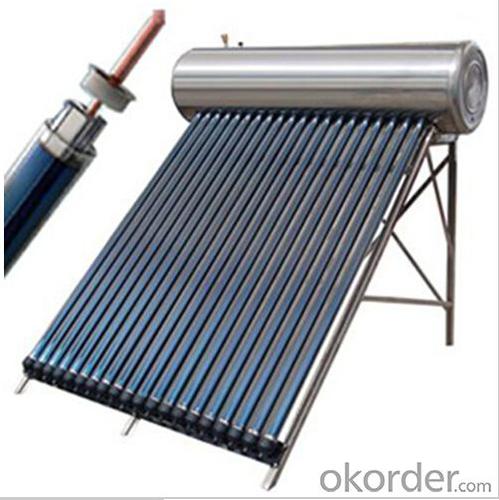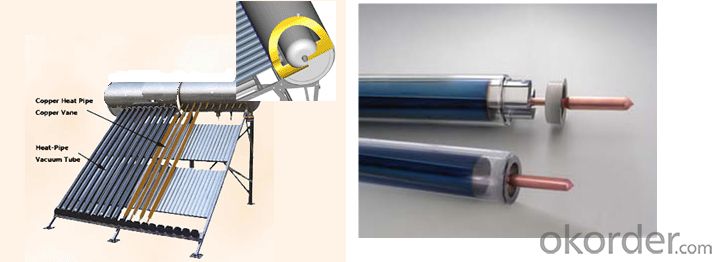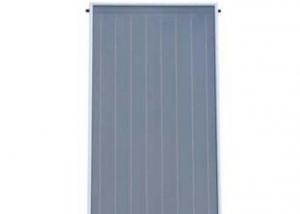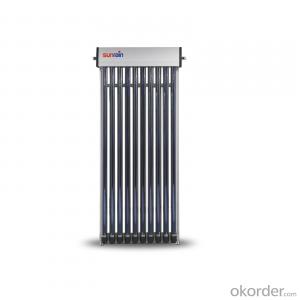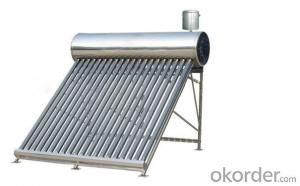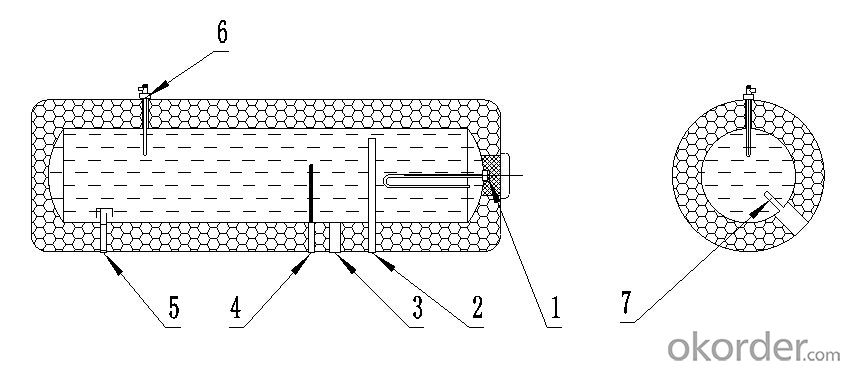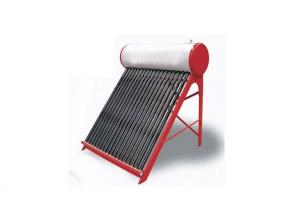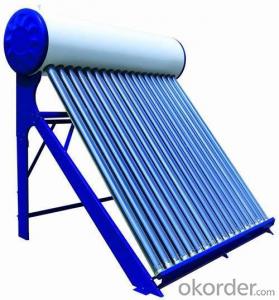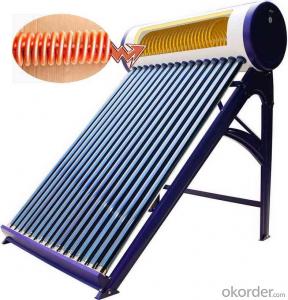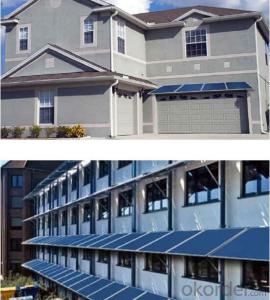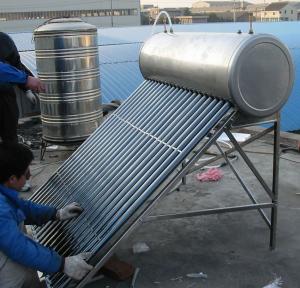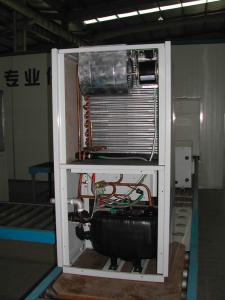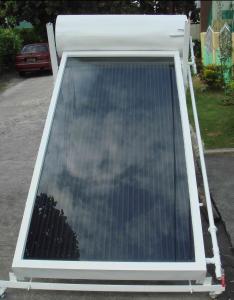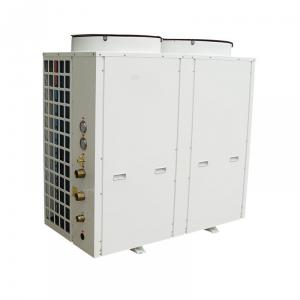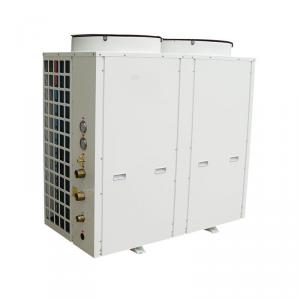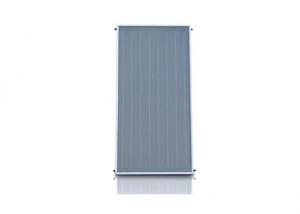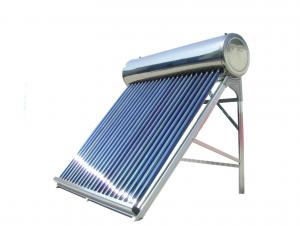Solar Water Heater 200 Ltr Price - Integrative Pressurized Stainless Steel Model SP-HS
- Loading Port:
- Shanghai
- Payment Terms:
- TT or LC
- Min Order Qty:
- 10 set
- Supply Capability:
- 2500 set/month
OKorder Service Pledge
OKorder Financial Service
You Might Also Like
Pressurized Stainless Steel Solar Water Heater Model SP-HS is composed by the following parts as shown in the graphic
1.Water inlet 2.Water outlet 3.P/T Valve 4.Electrical heater 5.Drain vent 6.Sensor hole 7. Heat exchange tube |
|
2.Main Features of the Pressurized Stainless Steel Solar Water Heater Model SP-HS:
(1)Glass vacuum tube solar collector, high temperature,antifreeze,vacuum insulation
(2)Copper heat pipe,Start up quickly,transfers heat quickly, low start-up temperature,low temperature resistant
(3) Food-grade stainless-steel SUS304 2B inner tank,full-automatic welding technology,under the protection of magnesium rod,it can increase of service life
(4)High pressure polyurethane foaming insulation,as the prefect density and the thermal conductivity coefficient is small, so it can provide effective heat preservation
(5)Gravity assisted heat pipe, unilateral heat transfer,high efficiency,low heat loss
3. Pressurized Stainless Steel Solar Water Heater Model SP-HS Images:
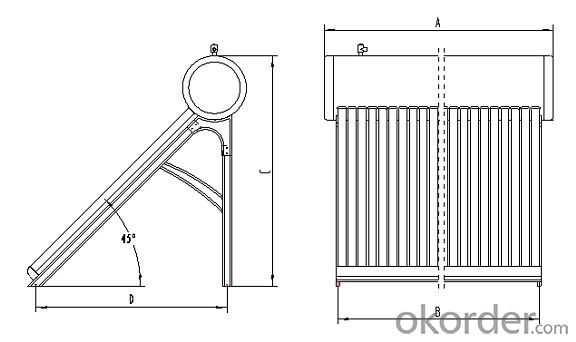
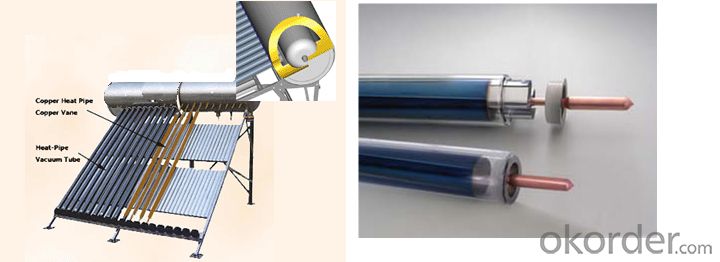
4. Pressurized Stainless Steel Solar Water Heater Model SP-HS Specifications:
Specification & model | SP-H-15 | SP-H-18 | SP-H-20 | SP-H-24 | SP-H-25 | SP-H-30 | ||
Tube QTY(pcs) | 15 | 18 | 20 | 24 | 25 | 30 | ||
Tube spacing㎜) | 75 | 75 | 75 | 75 | 75 | 75 | ||
WATER TANK | ||||||||
Net Volume of Storage Tank(L) | 125 | 145 | 160 | 190 | 200 | 235 | ||
Diamater of inner/outer Tank(㎜) | φ360/φ470 | φ360/φ470 | φ360/φ470 | φ360/φ470 | φ360/φ470 | φ360/φ470 | ||
material and thickness of inner tank(㎜) | SUS304 /t1.2 | SUS304 /t1.2 | SUS304 /t1.2 | SUS304 /t1.2 | SUS304 /t1.2 | SUS304 /t1.2 | ||
material of outer tank | stainless steel | stainless steel | stainless steel | stainless steel | stainless steel | stainless steel | ||
material of insulation | polyurethane | polyurethane | polyurethane | polyurethane | polyurethane | polyurethane | ||
Size of electrical heater hole | 11/4″ | 11/4″ | 11/4″ | 11/4″ | 11/4″ | 11/4″ | ||
Cold water inlet hole | 3/4″ | 3/4″ | 3/4″ | 3/4″ | 3/4″ | 3/4″ | ||
Hot water outlet hole | 3/4″ | 3/4″ | 3/4″ | 3/4″ | 3/4″ | 3/4″ | ||
T/P valve hole | 3/4″ | 3/4″ | 3/4″ | 3/4″ | 3/4″ | 3/4″ | ||
Drain vent hole and Magnisium hole | 3/4″ | 3/4″ | 3/4″ | 3/4″ | 3/4″ | 3/4″ | ||
Sensor hole | 1/2″ | 1/2″ | 1/2″ | 1/2″ | 1/2″ | 1/2″ | ||
Vacuum Tube | ||||||||
Diameter/Length(㎜) | φ58/1800 | φ58/1800 | φ58/1800 | φ58/1800 | φ58/1800 | φ58/1800 | ||
Material | High boron and silicon glass 3.3 | High boron and silicon glass 3.3 | High boron and silicon glass 3.3 | High boron and silicon glass 3.3 | High boron and silicon glass 3.3 | High boron and silicon glass 3.3 | ||
Outside thickness(㎜) | 1.8 | 1.8 | 1.8 | 1.8 | 1.8 | 1.8 | ||
Inside thickness(㎜) | 1.6 | 1.6 | 1.6 | 1.6 | 1.6 | 1.6 | ||
Light transmission rate | ≥0.90 | ≥0.90 | ≥0.90 | ≥0.90 | ≥0.90 | ≥0.90 | ||
Vacuum degree (Pa) | <10^-2 | <10^-2 | <10^-2 | <10^-2 | <10^-2 | <10^-2 | ||
Coating absorption | ≥0.90 | ≥0.90 | ≥0.90 | ≥0.90 | ≥0.90 | ≥0.90 | ||
Coating emittance | ≤0.07 | ≤0.07 | ≤0.07 | ≤0.07 | ≤0.07 | ≤0.07 | ||
Average heat loss coefficient | ≤0.75W/(㎡·℃) | ≤0.75W/(㎡·℃) | ≤0.75W/(㎡·℃) | ≤0.75W/(㎡·℃) | ≤0.75W/(㎡·℃) | ≤0.75W/(㎡·℃) | ||
Frame | 2 feets ( left-to-right ) | 3 feets ( left-middle-right ) | ||||||
Material | Galvanized steel t1.2 | Galvanized steel t1.2 | Galvanized steel t1.2 | Galvanized steel t1.2 | Galvanized steel t1.2 | Galvanized steel t1.2 | ||
Angle | 45° | 45° | 45° | 45° | 45° | 45° | ||
Tube support Specification/hole distance(㎜ | φ58/75 | φ58/75 | φ58/75 | φ58/75 | φ58/75 | φ58/75 | ||
Accessories: | ||||||||
Tube sealing ring | Silicon rubber/φ58 | Silicon rubber/φ58 | Silicon rubber/φ58 | Silicon rubber/φ58 | Silicon rubber/φ58 | Silicon rubber/φ58 | ||
Tube dusting rings | Silicon rubber/φ58 | Silicon rubber/φ58 | Silicon rubber/φ58 | Silicon rubber/φ58 | Silicon rubber/φ58 | Silicon rubber/φ58 | ||
Tube holder | ABS/φ58 | ABS/φ58 | ABS/φ58 | ABS/φ58 | ABS/φ58 | ABS/φ58 | ||
Item Size:: | ||||||||
a (㎜) | 1385 | 1610 | 1760 | 2060 | 2135 | 2510 | ||
b (㎜) | 1110 | 1335 | 1485 | 1785 | 1860 | 2235 | ||
c (㎜) | 1700 | 1700 | 1700 | 1700 | 1700 | 1700 | ||
c/2 (㎜) | —— | —— | —— | 892.5 | 930 | 1255 | ||
d (㎜) | 1430 | 1430 | 1430 | 1430 | 1430 | 1430 | ||
5. FAQ
(1). How do I protect my solar system during subzero temperatures?
If you have a system that is operating in areas with subzero temperatures then freeze protection must be implemented. The easiest means of preventing freezing is to use a controller with a low temperatures setting, so when the manifold temperature drops below a certain pre-set temperature (5oC/40oF), the pump will circulate, warming the collector with water from the bottom of the storage tank. The pump will not run continually, just periodically, the frequency of which will depend on the outside temperature. In extremely cold areas, a closed loop using a glycol/water mix may be appropriate.
(2). Will water be heated on a cloudy day?
Yes. Although the heat output of the solar collector is reduced on overcast days it will still be able to provide heating. If it is a heavily clouded day or raining, then more gas or electric boosting may be required to maintain water at the required temperature. This system will be automated so you don't have to worry about running out of hot water on a rainy day.
- Q: Can a solar water heater be used in areas with limited access to pellets?
- Yes, a solar water heater can be used in areas with limited access to pellets. Unlike pellet-based water heaters, solar water heaters rely on the energy from the sun to heat water. They typically consist of solar collectors, a storage tank, and a circulation system. The solar collectors absorb sunlight and convert it into heat, which is transferred to the water in the storage tank. This process requires no pellets or any other external fuel source. Therefore, as long as there is sufficient sunlight available, a solar water heater can be used effectively in areas with limited access to pellets or any other fuel source.
- Q: How does the material of the storage tank affect the performance of a solar water heater?
- The material of the storage tank has a significant impact on the performance of a solar water heater. Different materials have varying levels of thermal conductivity and insulation properties. For instance, materials like stainless steel or glass-lined tanks tend to have better heat retention capabilities, ensuring minimal heat loss from the stored water. On the other hand, materials with poor insulation, such as plastic or certain metals, can result in higher heat dissipation, reducing the overall efficiency of the system. Therefore, selecting an appropriate material for the storage tank is crucial in optimizing the performance and energy efficiency of a solar water heater.
- Q: Can a solar water heater be used in areas with limited access to training programs?
- Yes, a solar water heater can be used in areas with limited access to training programs. Solar water heaters are relatively simple and can be installed and operated with basic knowledge and understanding. Additionally, there are numerous online resources and instructional materials available that provide step-by-step guidance on the installation and maintenance of solar water heaters, making it possible for individuals in areas with limited access to training programs to still benefit from this sustainable technology.
- Q: How does a solar water heater compare to a traditional electric or gas water heater?
- A solar water heater differs significantly from a traditional electric or gas water heater in terms of its energy source and overall efficiency. Firstly, a solar water heater utilizes the sun's energy to heat the water, whereas traditional electric or gas water heaters rely on electricity or natural gas. This distinction results in a major advantage for solar water heaters as they are powered by a renewable and free energy source, making them more environmentally friendly and cost-effective in the long run. Secondly, a solar water heater typically has lower operational costs compared to traditional water heaters. Once the initial investment is made, the ongoing costs are minimal as solar energy is free. In contrast, electric and gas water heaters require continuous energy supply, which can result in higher utility bills. Furthermore, the efficiency of a solar water heater is generally higher than that of traditional water heaters. Solar water heaters can be designed to optimize heat absorption and minimize heat loss, leading to higher performance and faster heating times. This efficiency can result in a greater supply of hot water, even on cloudy or rainy days when solar energy may be less available. However, solar water heaters do have some limitations compared to electric or gas water heaters. They rely on sunlight, so their performance may be reduced in areas with limited sunlight or during the winter months. Additionally, solar water heaters require sufficient roof space or dedicated areas for installation, which may not be feasible for all households. In summary, a solar water heater offers several advantages over traditional electric or gas water heaters, including lower operating costs, higher efficiency, and a more environmentally friendly energy source. However, it's important to consider the limitations based on climate and available space before deciding which type of water heater is most suitable for a particular household.
- Q: Can a solar water heater be installed in an apartment or condominium?
- Yes, a solar water heater can be installed in an apartment or condominium. However, it is important to check with the building management or homeowners association to ensure that there are no restrictions or regulations in place regarding the installation of solar panels or modifications to the building's plumbing system.
- Q: Can a solar water heater be used in areas with high wind speeds?
- Yes, a solar water heater can be used in areas with high wind speeds. However, it is important to ensure that the system is properly designed and secured to withstand the wind. This may involve using appropriate mounting systems, anchoring the system securely, and selecting durable materials that can withstand the wind loads. Additionally, regular maintenance and inspections should be conducted to ensure the system remains in good working order even in high wind conditions.
- Q: What are the installation requirements for a solar water heater's expansion tank?
- The installation requirements for a solar water heater's expansion tank may vary depending on the specific model and manufacturer. However, there are some general guidelines that are typically followed. Firstly, it is important to ensure that the expansion tank is installed in a location where it can easily be accessed for maintenance and inspection. This may involve providing adequate clearance around the tank and ensuring that it is not obstructed by other equipment or structures. The expansion tank should be installed on the cold water supply line, typically near the inlet of the solar water heater. This allows it to effectively absorb the increased volume of water when it expands due to heating. It is important to follow the manufacturer's instructions regarding the specific location and orientation of the tank. In terms of plumbing, the expansion tank should be connected to the cold water supply line using appropriate fittings and connectors. It is essential to use high-quality, leak-proof connections to prevent any water leaks. The tank may also require a pressure relief valve to ensure that the system does not become over-pressurized. The expansion tank should be properly supported and secured to prevent any movement or damage. This may involve using brackets or straps to secure the tank to a wall or other stable structure. Before installing the expansion tank, it is recommended to consult the manufacturer's instructions and guidelines to ensure that all specific requirements are met. Additionally, it is often beneficial to consult with a professional plumber or solar water heater installer to ensure that the installation is done correctly and in compliance with local codes and regulations.
- Q: What is the expected maintenance schedule for a solar water heater?
- The expected maintenance schedule for a solar water heater typically includes annual inspections, cleaning of the solar panels, checking and tightening of connections, testing the system for leaks, and ensuring proper functioning of valves and pumps. Regular maintenance ensures optimal performance and extends the lifespan of the solar water heater.
- Q: What is the required maintenance cost for a solar water heater over its lifespan?
- The required maintenance cost for a solar water heater over its lifespan is generally low. Routine maintenance, such as checking for leaks, cleaning the panels, and inspecting the system, may be necessary but often requires minimal expenses. However, occasional repairs or replacements of components like pumps or valves might incur additional costs. Overall, the maintenance expenses for a solar water heater are typically much lower compared to conventional water heating systems, making it a cost-effective and sustainable choice in the long run.
- Q: Are solar water heaters noisy?
- No, solar water heaters are not noisy. They operate silently as they do not have any moving parts or components that generate noise.
Send your message to us
Solar Water Heater 200 Ltr Price - Integrative Pressurized Stainless Steel Model SP-HS
- Loading Port:
- Shanghai
- Payment Terms:
- TT or LC
- Min Order Qty:
- 10 set
- Supply Capability:
- 2500 set/month
OKorder Service Pledge
OKorder Financial Service
Similar products
Hot products
Hot Searches
Related keywords
